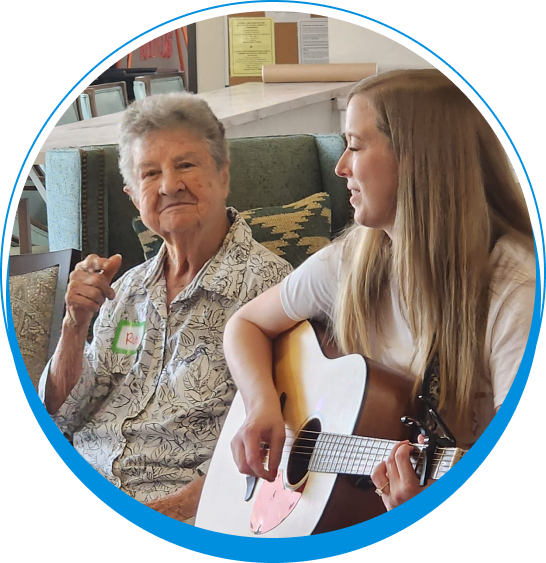By Jaime Cobb
Social wellness is our ability to connect with and relate to others in the world – and it’s as important for those with dementia as it is for their caregivers. Loneliness can lead to depression and even exacerbate confusion, so it’s important to maintain social contact with family and friends to boost self-esteem and stay cognitively stimulated. If going to social environments like Adult Day Care Center or church isn’t feasible for whatever reason, look for creative ways to find social outlets for both you and your loved one. Technology is a great way to stay socially connected, but it’s not the only way.
- Phone Calls: Shorter and more frequent calls might be best for your loved one. Also, make sure they have pictures of the people they’re talking with to help them focus and maintain awareness during the call. Photos may also spark fun memories that they could discuss during the phone call.
- Letters: Although most modern communication takes place via email and text, your loved one with dementia is of the generation that wrote letters. Consider asking friends and family to write a card or letter and send it to your loved one. It’s about more than just the act of connecting; it gives your loved one the opportunity to receive mail and enjoy the process of sitting and reading it. If they are unable to read, you can read it to them. You can also help your loved one respond with a handwritten letter.
- FaceTime/Video Chat: Hearing the voices of family and friends can mean a lot – and being able to see their faces can mean even more. The options for virtual face-to-face conversations have exploded making this easy and accessible for anyone with a computer or smartphone. One thing to consider: there may come a time when your loved one can’t understand “real time” video chatting and may become upset or more confused, especially if there are technical issues. Generally, this generation is more familiar with and responds better to recorded video messages that can be played back like movies.
- Home Movies: Those with dementia, especially in the earlier stages, are generally able to recall long-term memories and events from earlier in life better than more recent memories. Pull out any home movies to help trigger positive feelings associated with the past and, in the absence of actual in-person togetherness, allow your loved one to feel more connected to others.
- Photo Albums: Like home movies, old photos can evoke your loved one’s emotional memories, even if they don’t recognize all the people in the photos. In the later stages of dementia, it can be enough to just talk about the picture, asking your loved one, “Doesn’t she look happy?” or “What color is that dress?”
- Livestream/Facebook Live: Some churches and other organizations such as fitness clubs are using social media to stay connected. Consider watching a church service live on Sunday, or you and your loved one joining in with a simple chair workout with your local gym.
Families living with dementia often feel helpless and alone. Fostering connection is a powerful way to continue to provide the best care possible for your loved one – and yourself.


